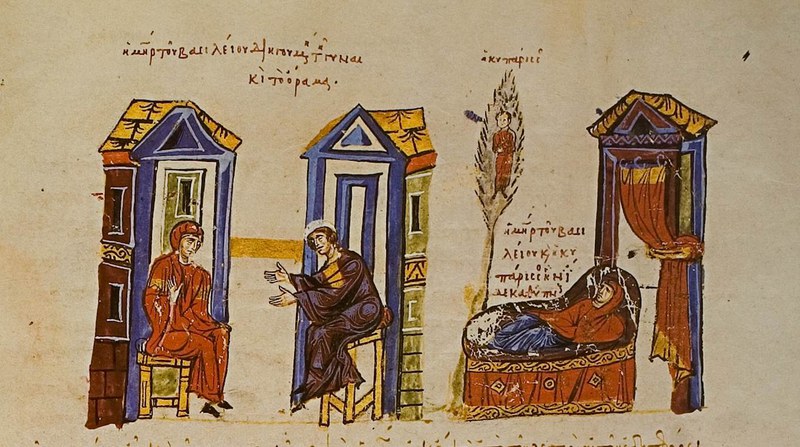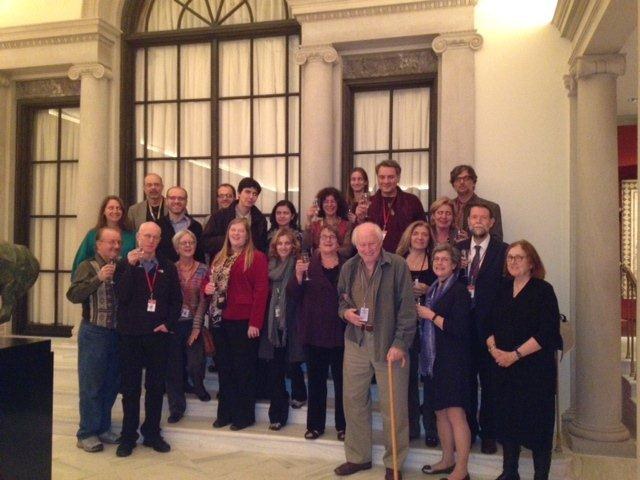 The study of dreaming in Byzantium is in its infancy. We have a corpus of oneirokritika, and studies on dream treatises, but the study of dream narratives has hardly begun, despite the ground-breaking database initiative of the Institute of Byzantine Studies in Athens. Dreams can be many things: a view into the future, a manifestation of the past, a means of approaching the divine, a mechanism for healing, a plot device, a medieval cinema, a complex means of communication, or an alternative plane of existence. We have simply not determined which of these are pertinent to Byzantium. Historians (Angold, Hatlie) have begun to use dreams as an indicator of the concerns and fears of a period, or ‘age of anxiety’ (in Dodds’s sense) without explicit analysis of the dream narratives in the context of dreaming. We would hope to select a certain number of narratives for close examination by a multi-disciplinary group, and arrive at some view of how dream-narratives work in Byzantium. Is there any difference between ‘dreams’ and ‘visions’? what are ‘phantasiai’ and ‘logismoi’? How do our categories map on to Byzantine ones? How visual are the narratives? How are they plotted? How do they relate to fictional products of the literary imagination? and to other forms of perception and cognition in Byzantium? And, finally, how should historians use them in constructing cultural and social history? A web presence could allow the offering of narratives to supplement those already entered into the database, and also of contributions to their discussion, both before and after the event. Each contributor brought a Byzantine dream, introduced it (10 minutes) and the group then discussed it for an hour.
The study of dreaming in Byzantium is in its infancy. We have a corpus of oneirokritika, and studies on dream treatises, but the study of dream narratives has hardly begun, despite the ground-breaking database initiative of the Institute of Byzantine Studies in Athens. Dreams can be many things: a view into the future, a manifestation of the past, a means of approaching the divine, a mechanism for healing, a plot device, a medieval cinema, a complex means of communication, or an alternative plane of existence. We have simply not determined which of these are pertinent to Byzantium. Historians (Angold, Hatlie) have begun to use dreams as an indicator of the concerns and fears of a period, or ‘age of anxiety’ (in Dodds’s sense) without explicit analysis of the dream narratives in the context of dreaming. We would hope to select a certain number of narratives for close examination by a multi-disciplinary group, and arrive at some view of how dream-narratives work in Byzantium. Is there any difference between ‘dreams’ and ‘visions’? what are ‘phantasiai’ and ‘logismoi’? How do our categories map on to Byzantine ones? How visual are the narratives? How are they plotted? How do they relate to fictional products of the literary imagination? and to other forms of perception and cognition in Byzantium? And, finally, how should historians use them in constructing cultural and social history? A web presence could allow the offering of narratives to supplement those already entered into the database, and also of contributions to their discussion, both before and after the event. Each contributor brought a Byzantine dream, introduced it (10 minutes) and the group then discussed it for an hour.
Preliminary Reading:
Workshop Materials:
Dream Narratives: Texts and Translations

The Contributors at Work

The Dream Doctors

After the Final Meeting of the Workshop